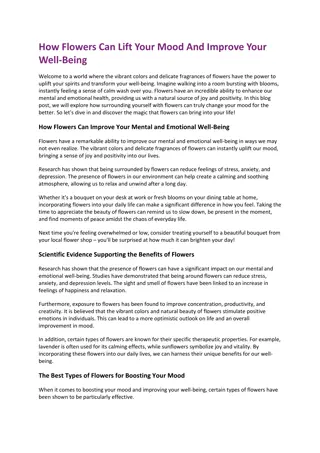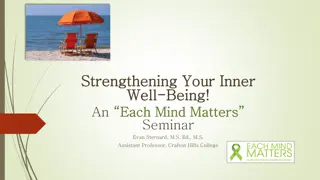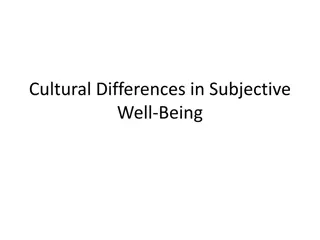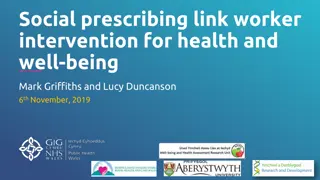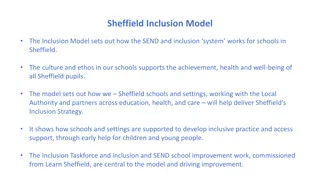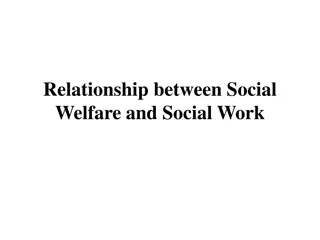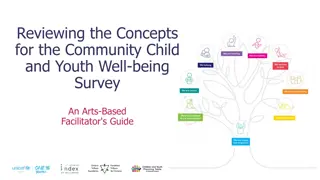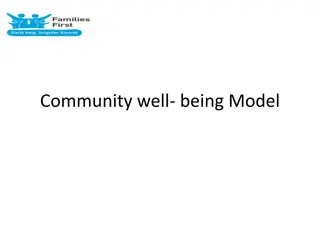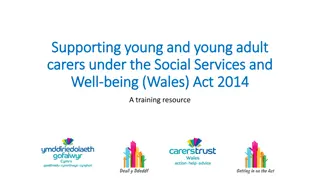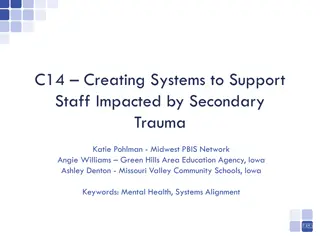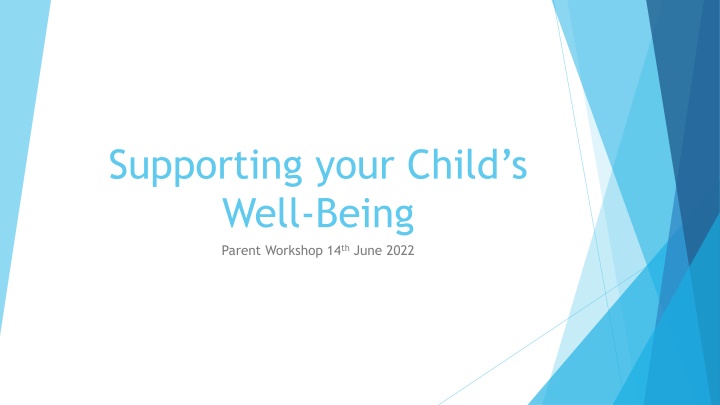
Supporting Your Child's Well-Being: Key Points and Strategies
Learn about the importance of mental health in children and how to support it effectively. Discover key points on fostering loving relationships, managing emotions, promoting physical health, and building positive relationships for your child's well-being.
Download Presentation

Please find below an Image/Link to download the presentation.
The content on the website is provided AS IS for your information and personal use only. It may not be sold, licensed, or shared on other websites without obtaining consent from the author. If you encounter any issues during the download, it is possible that the publisher has removed the file from their server.
You are allowed to download the files provided on this website for personal or commercial use, subject to the condition that they are used lawfully. All files are the property of their respective owners.
The content on the website is provided AS IS for your information and personal use only. It may not be sold, licensed, or shared on other websites without obtaining consent from the author.
E N D
Presentation Transcript
Supporting your Childs Well-Being Parent Workshop 14thJune 2022
Key points to supporting your childs well-being Good mental health helps children develop socially, emotionally, mentally and physically. Loving relationships are key to children s mental health. Learning to manage feelings is important to mental health. Physical activity, healthy eating habits and sleep are good for children s mental health.
What is Mental Health? Mental health is the way children think and feel about themselves and the world around them. It affects how children cope with life s challenges and stresses. What good mental health in children looks like: Children with good mental health: feel happy and positive about themselves most of the time are kind to themselves during tough times or when things don t go the way they expect enjoy life learn well get along well with family and friends can manage sad, worrying or angry feelings can bounce back from tough times are prepared to try new or challenging things.
Relationships and good mental health for children A positive relationship with you directly and positively affects your child s mental health. Tell your child that you love them, no matter what. You can also show love through your body language Use a positive, constructive and consistent approach to guide your child s behaviour. Make time every day to talk and listen to your child. Enjoy time with your child doing activities they like. Work on positive ways to solve problems and manage conflict between you and your partner, with your child and among other family members. Encourage your child to connect with others in the community
Emotions and good mental health for children Children experience all sorts of emotions as part of growing up fear, disappointment, sadness, anxiety, anger, joy, hope and so on. When children cope with big emotions or calm themselves down in difficult or emotional situations, they re likely to feel good about themselves. Talk about emotions with your child, and encourage them to recognise and label their emotions. Role-model a positive outlook for your child for example, I m disappointed that my cake didn t cook properly, but that s OK I ll try it again another time . Support your child when something is bothering them. Help your child learn to manage small worries so they don t become big problems.
Good physical health for children- Exercise: Good physical health is important for mental health. That s because being active helps your child stay healthy, have more energy, feel confident, manage stress and sleep well. Encourage your child to try plenty of different physical activities and sports. Sign your child up for one of our after school clubs- they can learn a new sport whilst being active and making new friends Try a new activity at home together- dance to your favourite song in the kitchen, try yoga ( Cosmic Yoga is great on youtube), go for a long walk to the park, join a Park Run on a Saturday or go for a cycle together .
Diet Offer healthy food and encourage healthy eating habits in your family. What goes into a healthy packed lunch? Bread, cereals, potatoes and other starchy foods Examples: sandwiches, pitta bread, wraps, pasta salad, potato salad, potato or sweet potato wedges, rice dishes, couscous, bread sticks, crackers, rice cakes, plain popcorn. Fruits and vegetables Examples: fresh fruit, tinned fruits, dried fruits, salad items, any type of vegetables. You could include vegetable sticks for dipping or add veggies to salads, pasta or rice or couscous dishes. Dairy and dairy alternatives Examples: cheese, yoghurts (or dairy-free alternative e.g. soya yoghurts), custard (soya custard), rice pudding, a carton of milk or yoghurt-based smoothies, carton of milk or a dairy-free alternative such as soya, oat milk or coconut milk. Meat, fish, eggs, beans and other non-dairy sources of protein Examples: chicken, turkey, pork, beef, lamb, beans, fish, shellfish, lentils, chickpeas, pulses, hummus, quorn or soya products such as tofu.
Drinks Milk and water are the best drinks for children because they are tooth-friendly. Our school does NOT allow sugar-sweetened soft drinks and fizzy drinks because they cause tooth decay.
Sleep Make sure your child gets the sleep they need. Quality sleep will help your child to manage stress and a busy life. Sleep is also important for their growth. but should also be a place to sleep and not play. Your child s sleeping environment should be a place where they feel safe and secure, Bedtime Routine Sticking to a set pattern each night will help your child to settle before bed and give them the time to calm down before sleeping. Going to the toilet as the last task before getting into bed can also help prevent your child from needing to get up in the night time. Start quiet time about one hour before your child goes to sleep, by tidying away toys and screens. Run your child a bath and keep to a ten minute time limit. Read them a bedtime story to relax them.
The American Academy of Sleep Medicine in 2016 recommended the right amount of sleep for children and young people. The table below gives an indication of the amount of sleep your child needs on a regular basis to keep them healthy. Recommended sleep time in 24 hours Your child s age Infants 4 to 12 months 12 to 16 hours including naps Children 1 to 2 years 11 to 14 hours including naps Children 3 to 5 years 10 to 13 hours including naps Children 6 to 12 years 9 to 12 hours Teenagers 13 to 18 years 8 to 10 hours

